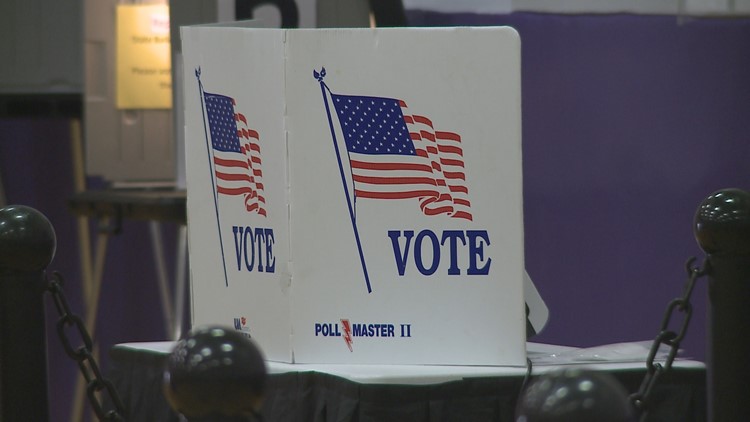PORTLAND, Maine — Five citizen initiatives, among them an $18 minimum wage, met the 1,500 signature threshold to appear on the November ballot, according to city officials.
On July 1, four initiatives from the Maine chapter of the Democratic Socialists of America's Livable Portland were certified, according to Jessica Grondin, director of communications & digital services for the City of Portland. A fifth initiative from organizer Scott Ferris was certified on June 17.
The four initiatives certified on July 1 (including a minimum wage increase) are as follows:
If approved, the first initiative would increase the minimum wage in Portland to $18 an hour over three years. It also aims to eliminate the sub-minimum wage for tipped workers over the same three years.
"Tipped workers will then earn $18 an hour plus tips. It also provides an $18 minimum wage for workers currently not receiving the minimum wage, including taxi drivers and other ride-hailing services, personal shoppers, delivery workers, and those doing work for a unit of government. It also creates the Department of Fair Labor Practices to ensure wage and worker safety laws are enforced," the act stated.
If approved, the second initiative would ensure tenants get a 90-day notice for lease termination and/or rent increases. It aims to discourage no-cause evictions by limiting the five-percent rent increase to voluntary turnovers. The act's text also stated it would reduce costs to tenants by restricting deposits to one month of rent, further limiting the amount of standard annual rent increases that landlords are allowed to impose to 70% of CPI, and prohibiting application fees. In addition to all that, it would also set a $25,000 fee for condominium conversions.
"It strengthens protections for tenants who exercise their rights under the ordinance and provides greater clarity and authority to the rent board to ensure landlords receive a fair return on investment and that tenant complaints receive a fair hearing," the act stated.
If approved, the third initiative would restrict all Portland short-term rentals to only those that are owner-occupied, tenant-occupied, or located in two-unit buildings occupied by the owner. It also aims to increase the annual fee for owner-occupied short-term rentals to $250 and non-owner-occupied units to $750, as well as simplify the fee structure.
"The act also requires notifications to all residents within 500 feet of a registered short-term rental, increases penalties for and strengthens enforcement of violations, requires the logging of complaints against short-term rentals, and allows the city to revoke short-term rental registrations," the act stated.
If approved, the fourth initiative would limit the number of passengers who may disembark from cruise ships in Portland to no more than 1,000 people on a given day, in aggregate.
"This ordinance will go into effect in 2025," the act stated.
Wes Pelletier is campaign chair for Maine DSA for A Livable Portland. He provided the following statement in a news release on Tuesday:
"The industry and culture that are causing so many to flock to Portland depends on the labor of the city's vibrant working and renting class. Our communities are being threatened by landlords making record profits off of an affordable housing crisis, wages being outpaced by inflation, and climate change and congestion pulverizing our waterfront. Portland is on a track to become unlivable, but we're organizing to correct that course."
The initiative certified on June 17 is: An Act to Regulate Short Term Rentals in Portland and Prohibit Corporate and Absentee Operation of Short Term Rental Properties.
If approved, it would prohibit corporate owners and non-local operators from registering short-term rentals in the city. It also aims to strengthen tenant protections by prohibiting eviction of tenants for the purpose of immediate conversion to short-term rentals and by prohibiting affordable and workforce housing from being used as short-term rentals.
In addition to that, the initiative increases penalities for disorderly properties and violations of the city's existing short-term rental rules.
Chris Korzen is with the organized effort behind Ferris's initiative. He told NEWS CENTER Maine, "We believe short-term rentals are an important part of the Portland economy. We want to make sure they serve the people of Portland and not corporate and outside interest."
Korzen added, "We believe this is a smart policy that a broad swath of our city's citizens can get behind."
Portland voters will decide on these initiatives in November.



